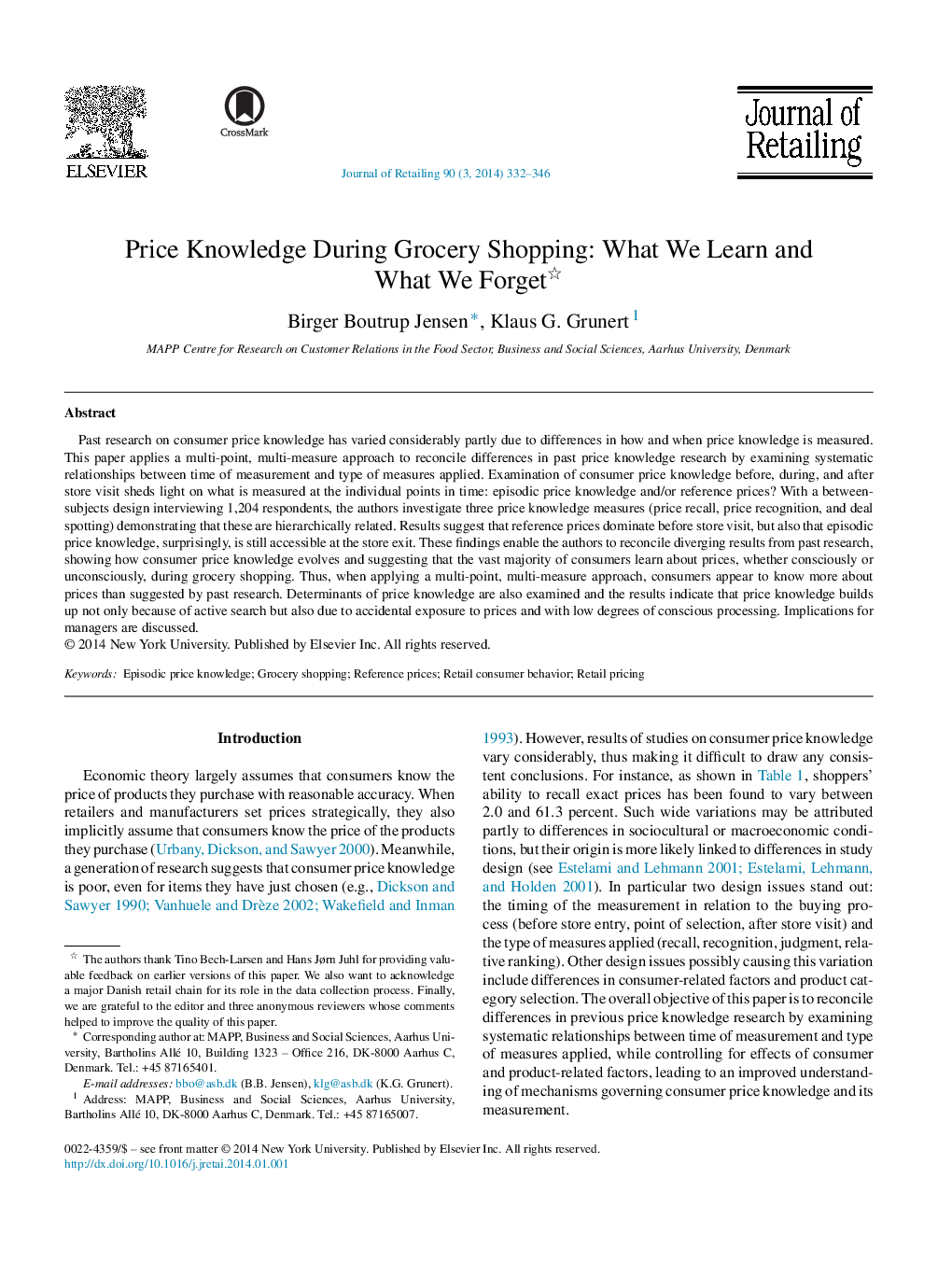| Article ID | Journal | Published Year | Pages | File Type |
|---|---|---|---|---|
| 886306 | Journal of Retailing | 2014 | 15 Pages |
•A multi-point, multi-measure approach is used to examine consumer price knowledge before, during, and after the store visit.•The three measures of price knowledge (price recall, price recognition and deal spotting) are shown to be hierarchically related.•Reference price knowledge dominates before store visit, while episodic price knowledge is still accessible at the exit.•Price knowledge builds up not only because of active search, but also due to mere exposure to prices happening by chance or unconsciously.•Based on the findings, we are able to reconcile diverging results from previous research, showing how consumer price knowledge evolves.
Past research on consumer price knowledge has varied considerably partly due to differences in how and when price knowledge is measured. This paper applies a multi-point, multi-measure approach to reconcile differences in past price knowledge research by examining systematic relationships between time of measurement and type of measures applied. Examination of consumer price knowledge before, during, and after store visit sheds light on what is measured at the individual points in time: episodic price knowledge and/or reference prices? With a between-subjects design interviewing 1,204 respondents, the authors investigate three price knowledge measures (price recall, price recognition, and deal spotting) demonstrating that these are hierarchically related. Results suggest that reference prices dominate before store visit, but also that episodic price knowledge, surprisingly, is still accessible at the store exit. These findings enable the authors to reconcile diverging results from past research, showing how consumer price knowledge evolves and suggesting that the vast majority of consumers learn about prices, whether consciously or unconsciously, during grocery shopping. Thus, when applying a multi-point, multi-measure approach, consumers appear to know more about prices than suggested by past research. Determinants of price knowledge are also examined and the results indicate that price knowledge builds up not only because of active search but also due to accidental exposure to prices and with low degrees of conscious processing. Implications for managers are discussed.
Graphical abstractEvolution of consumer price knowledge during grocery shopping.Figure optionsDownload full-size imageDownload as PowerPoint slide
